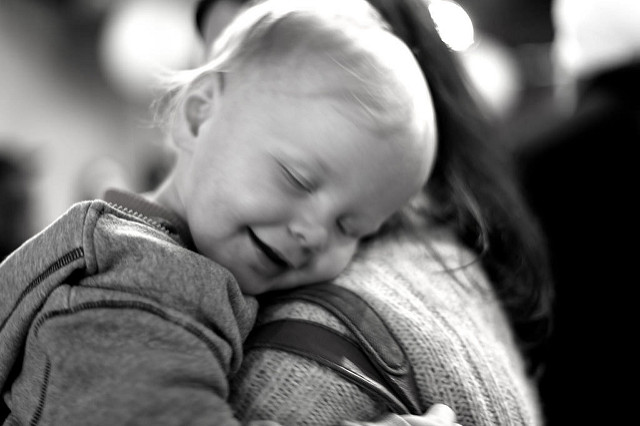Eyeway is delighted to bring to our readers, a new series on caring for the developmental needs of infants and children with visual impairment or blindness. Parents, educators and medical professionals will find the strategies and resources shared by expert Supriya Das, who has significant experience in the areas of visual impairment, deaf-blindness and multiple disabilities to be especially instructive. We start off with an introductory piece from her that looks into the need of early child intervention for infants with disabilities.
By Supriya Das
Remember the time when news of your pregnancy brought much joy to you and your partner? It was a euphoric moment followed by a wonderful journey of nine months. These months were filled with extra care, preparations, and looking forward to welcoming a little bundle of joy in your family. Time flew by and you brought your wonderful baby into the world.
However, then you realised that your baby is different. S/he is not developing like other babies, not making any eye contact and is missing her/his milestones. Reality hit you hard when the doctor told you that your baby has a visual disability. You were shattered, broken and lost when you heard the news. Now you are concerned about what to do next. This is exactly the time when you need to pick yourself up, gather courage and get geared to support your baby in her/his growth and development. The sooner you start the better.
The first few years of life (0-4 years) are a time of incredible growth and development. Babies show rapid changes in physical, cognitive and emotional development. There is no doubt that most growth is stimulated by a sense of vision. Sighted babies and toddlers achieve developmental milestones by themselves as they grow up. But babies with visual impairment or congenital blindness show developmental delays in the areas of motor abilities, language and communication, cognition and self-help.
In order to help babies with visual impairment or congenital blindness grow and develop as per their age, we need to create appropriate play opportunities and help them connect to their immediate surroundings by channelizing other senses .There do exist a series of services and strategies out there to provide timely and effective support in order to overcome missed milestones. These are collectively known as early intervention. Early intervention programmes train you on various ways of guiding your baby in her/his growing years. They also provide methods of assisting the early mainstreaming of your child into social groups and structures. Early intervention is not only about the early years, it also helps prevent lot of other developmental and behavioural challenges that are difficult to address by the parents alone. Your baby may encounter these as she/he grows up.
Even if the medical treatment of your baby’s vision is on-going, don’t just sit and wait for recovery. Your baby will miss out the crucial time when s/he can grow and develop the most. Get enrolled into an early intervention program as soon as you become aware of your baby’s visual impairment and special needs. You can do a lot for your baby if you take the right step at the right time.
All babies are a blessing and all of them are special in their own ways!
2. Check out videos, tips from parents and professionals around the world on raising children with disabilities at www.familyconnect.org
Supriya Das is Program Co-ordinator at the Infant to Toddler Programat Saksham, an NGO that works in the domain of disability. Her area of expertise involves working with children with visual impairment, deaf blindness and multiple disabilities. She also works with parents, care givers and communities to create awareness and provide training.


Facebook comments